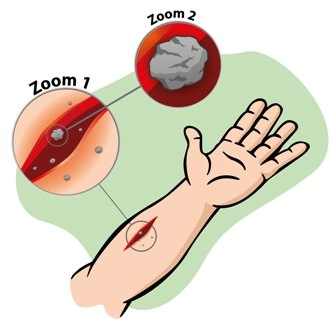Take Note of the New Codes for Malabsorption, Megacolon and IBS
Here’s why simply documenting “IBS” won’t work.
When it comes to the new diagnosis codes in gastroenterology for 2017, you do have quite a few codes to catch up with. In this continuous series of updates, here is a crisp overview of the changes relates to intestinal disorders, and how to cope with them.
“As with everything with ICD-10, we are looking for greater specificity on these types of conditions,” says Lisa Center, CPC, Physician Practice Manager, Via Christi Hospital Pittsburg, Inc. Pittsburg, KS.
Get Immense Options for Irritable Bowel Syndrome
If you do see patients with irritable bowel syndrome, it’s time for a greater specificity in documentation, as now you have three more codes based on presence of constipation. Therefore, K58 (Irritable bowel syndrome) now has three new added variants as follows:
Choose Constipation Codes Correctly
Looking at the category K59 (Other functional intestinal disorders) the subcategory K59.0 (constipation) has witnessed quite a few revisions too.
For K59.0, you need to add “Use Additional code for adverse effect, if applicable, to identify drug (T36-T50 with fifth or sixth character 5” to the existing descriptor. Further, you will need to add “Chronic constipation” to the extended descriptor of K59.09 (Other constipation).
You have two new codes too:
There’s More to Megacolon, Too
You’ll find a few revisions to K59.3 (Megacolon, not elsewhere classified). First, you need to delete “Toxic megacolon” from the extended descriptor, as in 2017, toxic megacolon will have a new code K59.31, all to itself. Second, the “code first” note also stands revised, from “(T51-T65) to identify toxic agent,” to “if applicable (T51-T65) to identify toxic agent.”
Apart from this, you will have two new codes too:
Intestinal Malabsorption codes get an overhaul
Talking about the category K90-K95, other diseases of the digestive system; within K90 (Intestinal malabsorption) you need to take note of quite a few revisions.
First, in the extended descriptor or K90.0 (Celiac disease) you will need to add “Celiac disease with Steatorrhea,” Delete “Idiopathic steatorrhea” and add “Code also exocrine pancreatic insufficiency (K86.81).”
Secondly, K90.4 “Malabsorption due to intolerance, not elsewhere classified” has been revised to “Other malabsorption due to intolerance.” What’s more, you need to remove the following from the extended descriptor:
“Malabsorption due to intolerance to carbohydrate
You have two new codes too:
“Malabsorption due to intolerance to carbohydrate
Final takeaway: Take note of these small changes, as this small step will go a long way in letting you have the payments you deserve. “Communication with the providers is key in order to get them to document appropriately,” advises Center. “Gone are the days where you could just say IBS.”
Malabsorption due to intolerance to fat
Malabsorption due to intolerance to protein
Malabsorption due to intolerance to starch”
Malabsorption due to intolerance to fat
Malabsorption due to intolerance to protein
Malabsorption due to intolerance to starch.”




